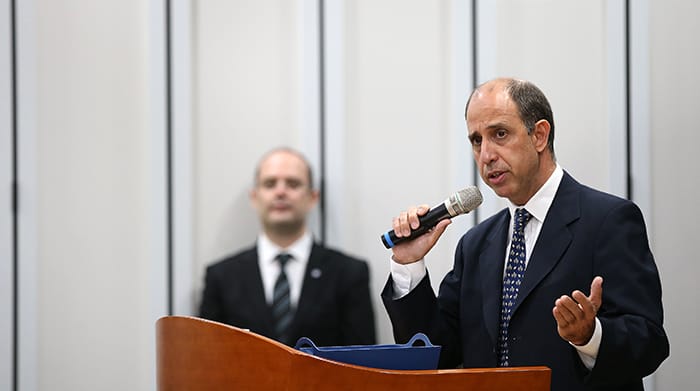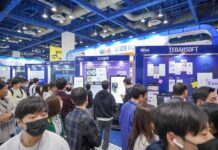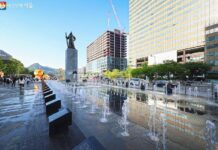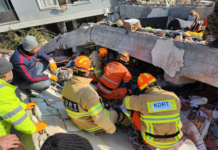
Tomas Ojea Quintana, the U.N.’s special rapporteur on North Korean human rights, gives a press statement following his official five-day mission to South Korea, at the Seoul Global Center on July 21. (Jeon Han)
By Lee Hana
July 21, 2017 | Seoul
Tomas Ojea Quintana, the U.N.’s special rapporteur on North Korean human rights, supported the South Korean government’s efforts to engage with Pyongyang, stressing the need for rhetoric to solve human rights issues.
Quintana arrived in Seoul on July 17 on a five-day mission to collect information for the 2017 U.N. Commission of Inquiry (COI) report on human rights in North Korea. The special rapporteur met with representatives from the ministries of foreign affairs, unification and justice, and held meetings with North Korean refugees in South Korea.
During a press conference at the Seoul Global Center on July 21, Quintana said that he “welcomes Seoul’s decision to seek dialogue with Pyongyang and explore the possibilities for mutual cooperation.” He also showed support for the new administration’s policies related to North Korea, especially those initiatives that address human rights. Saying that he “believes in the benefits of trying to seek engagement,” he stated that he “hopes that North Korea will respond positively to the Moon initiative in the interest of long-term peace, security and humanitarian cooperation between the two countries.”
Furthermore, Quintana brought attention to human rights issues to which his North Korean interviewees testified during his meetings. Stating that North Korean citizens are denied their basic rights, he expressed deep concern over the fact that North Korean citizens who are forcibly repatriated are sentenced to forced labor without due process of law, or sent to political prison camps. He also pointed out that it has become customary for North Koreans to pay officials to access basic rights, such as travelling inside the country and abroad, and receiving medical treatment.
hlee10@korea.kr























